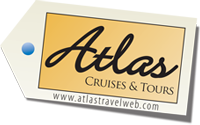Europe may appear overwhelming for a first time visitor, or even a seasoned traveler in certain countries. The following information will help you prepare for your vacation:
Passports/Documents:
Your passport must be current and valid for at least six months past your return date. Passports requires for US citizens traveling to Europe for stays of less than 90 days. A passport and Visa are necessary for travel to Russia (restricted to less than 30 days). A passport and onward/return ticket are necessary for travel to Croatia (less than 90 days).
Currency:
The Euro is the currency for most European nations (major exceptions are the U.K., Switzerland and Scandinavia). ATM’s are prevalent, and are usually your best source for cash at the most current exchange rate.
Adapters and Converters:
European voltage is higher (220v vs 110v) than that in the United States. A continental plug adapter and voltage converter are necessary.
Phone and Calling Cards:
Every country has a unique country code following a plus sign (i.e. +39 for Italy). Instead of area codes, all countries use city codes that begin with zero. Some U.S. phone cards offer international service in Europe. Low cost cell phones may be purchased in any European countries, and some US cell phone service providers offer overseas service for higher rates.
Temperature:
Europe records its temperatures in Celsius. To convert to an approximate Fahrenheit temperature, double the Celsius an add 30.
Time and Date:
The 24-hour clock is used to denote timetables. To convert to U.S. time for 13:00 and over, subtract 12 and add “pm”. For example, 18:00 is 6:00 pm.
Dates are written with day coming before the month. For example, Christmas is 25-12-10.
Greenwich Mean Time (UK) is 5 hours, and Continental Europe is 6 hours ahead of Eastern-Standard Time.
Tipping:
A customary European tip is 10-15%. However, many places include service charges in the bill, in which case no additional tip expected.
Packing for Your Trip:
Check with your airline for luggage weight restrictions, as many local European carriers have their own rules. Your primary bag should be relatively light and not exceed 25 inches.
Clothing:
Temperatures can fluctuate, so be prepared to dress in layers. Be aware that some sites, such as the Vatican, enforce strict dress codes. Consult your travel agent for more details.








